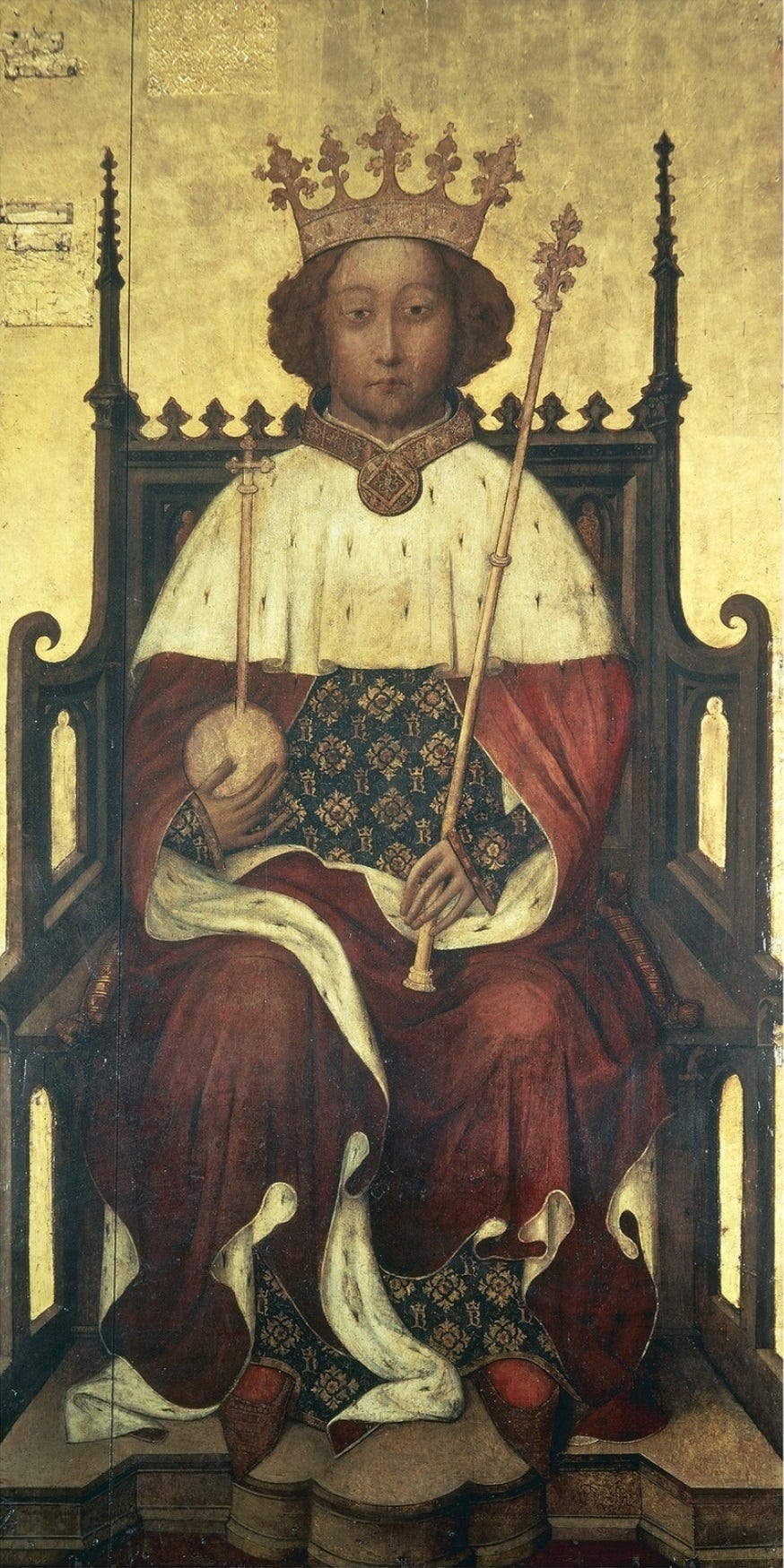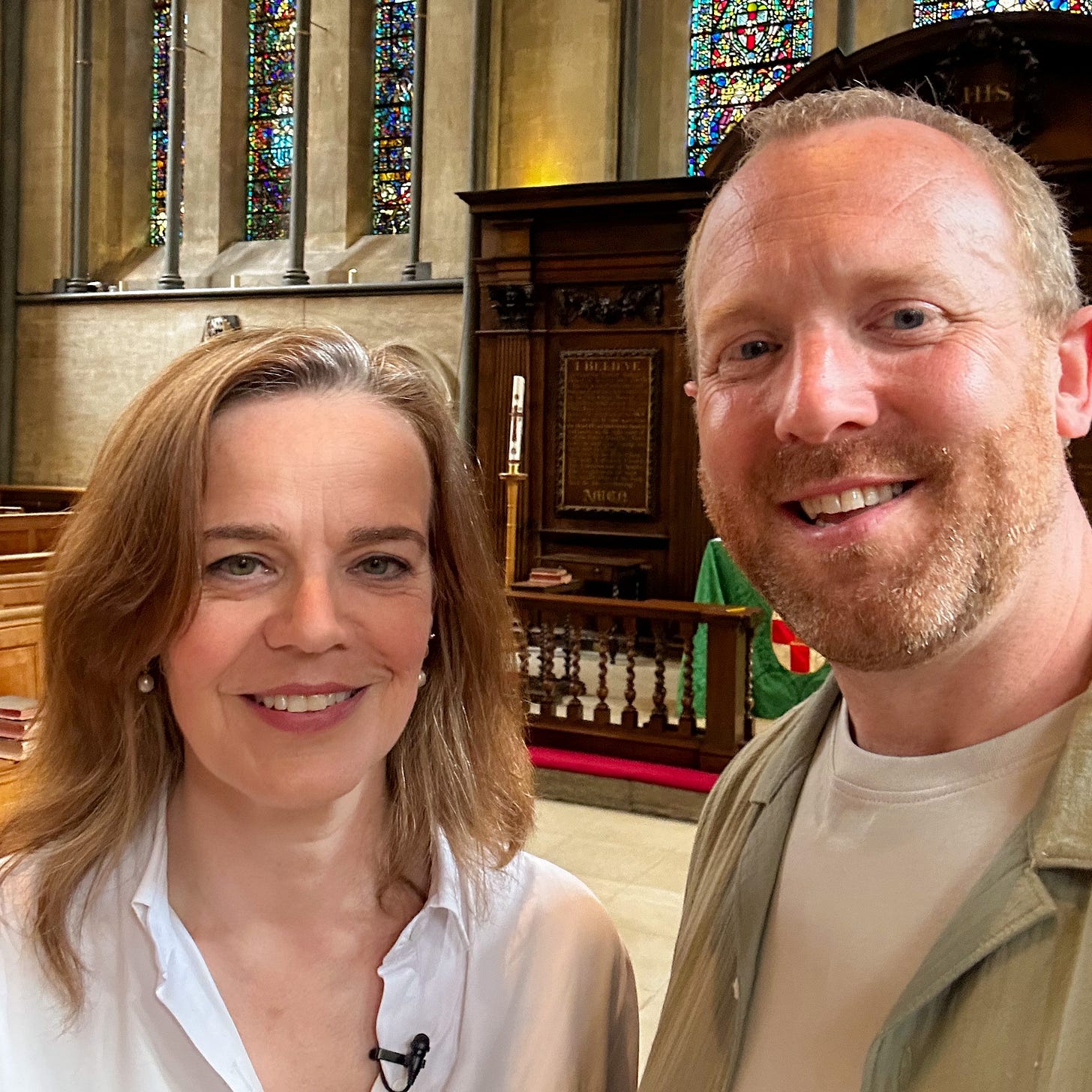Helen Castor is, I would contend, the medieval historian’s medieval historian. Aside from a successful teaching career, Helen has some stonking books in her back catalogue, from Joan of Arc to Elizabeth I, via She-Wolves, and through the Wars of the Roses with Blood and Roses, Helen has always combined the most rigorous research and attention to detail with a gift for telling a story in the most accessible way. This means readers benefit from all that accumulated knowledge, understanding, and insight but can also enjoy the symphony of having them brought together in harmony. You can hear each note and the tunes they form. Few historians draw such fine notes from the competing instruments of an orchestra of sources, motives, and personalities. Helen Castor is that orchestra’s maestro.

All of that is to say that when a new book emerges from the pen of Helen Castor, anyone interested in medieval history finds themselves scrambling to read it. You know, before you begin, complexities will be skilfully revealed, and pictures will be painted to deepen your understanding. The Eagle and The Hart: The Tragedy of Richard II and Henry IV will not disappoint. It navigates the reader through one of the most complex periods in medieval English history whilst also offering salient insights into an increasingly troubled modern world.
The title refers to the emblems employed by the two central figures of the story. King Richard II is the Hart, while his first cousin Henry Bolingbroke, later Henry IV, is the Eagle. The tragedy of the subtitle lies in the promise both offered and the loss, for various reasons, of most of that hope. The cousins were born in 1367. Richard was the elder by a few months, which feels odd because we often think of Richard as a child and Henry as a grizzled, weary older man. Maybe that’s Shakespeare whispering his version of this story, which, like that of Richard III, has long held a grip over the collective consciousness.
At their births, both men held illustrious positions but were not destined for the throne they would later endure – because it’s hard to imagine either enjoyed it. Until around his fourth birthday, Richard had a brother who would be heir to their feted father, Edward, the Black Prince of Wales. Richard and Henry’s shared grandfather, Edward III, had led England into war with France, which included famous victories like those of Crecy and Poitiers. The visitations of the Black Death had blighted his reign, but as he neared the end of a spectacular life, Edward III was viewed by many as an almost perfect medieval king. The loss of his son and heir, the Black Prince, just a year before he himself died in 1377, saw the future cast from certainty into crisis.
Edward III was succeeded by his ten-year-old grandson, Richard II. If there was little question that Richard should be king, there were plenty about how he might do it. There was an obvious answer. The new king had three surviving uncles. The oldest, John of Gaunt, Duke of Lancaster, was an accomplished politician and governor who had been treading in the footsteps of Richard’s father. A regency under Gaunt was the natural solution, but Gaunt was so unpopular that it felt impossible to put that solution into practice. Instead, a council was established to rule on behalf of the king, who would essentially be the puppet of lesser men until he reached the age of majority. It wasn’t ideal, but it might work.
The problem that quickly emerged was that no one explained this legal fiction to the little king. Perhaps to offer some protection from the fragility of a minority kingship, Richard was crowned and held up as second only to God in England. He was the face of decisions others made, but moments like his coronation nurtured the sense that he stood apart from others. Above them. If that was so, why were others making decisions without even consulting him? Why was his opinion ignored? To the council, he was just a child, but they’d explicitly build around him the fortress of a man of messianic significance. What would happen if he pulled up the drawbridge and sought to defend such a heavenly citadel? They were soon to find out.

Stood beside Richard at his coronation feast, where the new king sat enthroned, the centre of all attention in his new realm, was his cousin Henry. This boy’s father, John of Gaunt, had been denied a role as regent because of public perceptions of him as corrupt and greedy. Henry’s presence physically and symbolically positioned him at the right hand of the new ruler. They were meant to grow up to work in a partnership that would provide for the Lancastrian dynasty's future but might also make England unstoppable in a few short years.
It seemed like the crisis of a child king had been resolved, and the future would be bright. We know it would not be as it was meant to be. So, what went wrong?
This is where the third player enters the field. The Eagle and the Hart weaves the sometimes parallel, sometimes diverging, and ultimately colliding biographies of Richard and Henry. Their relationship ebbs and flows with tides driven by medieval England's living, breathing constitution. Almost two centuries after Magna Carta and more than fifty years after Edward III had reset the crown’s relationship with the nobility using the Treason Act, the scaffolding that held together king and kingdom would come under renewed scrutiny and rigorous testing during the reign of Richard II.
Richard’s early conviction of his own specialness, reinforced by his experiences during the Peasants’ Revolt, saw him shun the notion of anything like a conciliar government. Edward III had drawn men to him and forged that bond in the white heat of military success (and the cash that came with it). Richard, convinced that he was as special as he’d been told he was, felt no compunction to attract loyalty. He knew that he was owed it.
As he moved into adulthood, Richard gathered what looked like a cabal of sycophantic friends around him. He was delighted to indulge those who acknowledged his glowing aura but looked with scorn on those who stood outside its warm light. To Richard, notions that he was in any way restrained, whether by Magna Carta or his grandfather’s treason laws, were nothing short of absurd infringements of his rightful authority. Policy was a matter of mood, treason a matter of opinion (strictly Richard’s mind), and fickleness became the only certainty.
When some, known as the Lord Appellant, stood against Richard, he nurtured a burning need for vengeance. As they succeeded in restraining him, so they also sealed their own fates. Richard's only consistent traits were pettiness, cruelty, and a need for retribution. When his cousin Henry joined the Appellants, the bright future promised at the coronation was plunged into shadow. By the 1390s, Richard was driven only by his need to break free of those seeking to restrain his power and avenge himself upon them for the embarrassment they had inflicted upon him.
The Lords Appellant fell from grace spectacularly. Amongst them was one of Richard’s uncles, Edward III’s youngest son, Thomas, Duke of Gloucester. He was arrested and sent to Calais but would never stand trial, allegedly strangled on his nephew’s orders in prison. Richard surrounded himself with a thuggish squad of Cheshire archers, fiercely devoted to their master and willing to intimidate anyone who looked like they might be thinking of disloyalty. Henry was sent into exile, Richard, Castor asserts, making policy on the hoof like never before as he halted a duel as it was about to commence to deliver his change of mind. The reasons for the sudden volte-face are instructive, but I’ll leave you to explore them in the book.
Richard’s demise would come about as a result of the uncertainty his reign engendered. Being a bad king was one thing. Being unpredictable was intolerable, and a confrontation became inevitable. When his uncle Gaunt died, and Richard tried to take the vast Lancastrian inheritance into his own hands, he set butterflies crashing around the stomachs of all those wishing to be certain they could pass lands and titles to their sons. Richard’s mistake was in failing to realise he had alienated all of the powerful men in his kingdom. His miscalculation was believing he could beat them all in some sort of (literal) royal rumble.
I can’t hope to explain the complexities of the deposition of Richard II as well as Helen Castor does, so you’ll really just have to read the book. Henry became King Henry IV, the first ruler of the Lancastrian branch of the Plantagenet dynasty. By the time he becomes king, readers will be acquainted with a well-travelled, learned man with a reputation as a soldier who was liked by those he encountered. He seemed to be everything the grandfather he shared with Richard had been and, more importantly, everything Richard was not.
As Castor goes on to reveal, Henry’s reign would be blighted by the manner in which he became king. The realm had wanted him to depose Richard, but now he was king; it looked at him through narrowed eyes as a usurper. Henry’s every move was forensically measured. The careful balance between ruler and ruled had been unsettled. As it lurched to overcorrect, Henry was compelled to resist incursions into the reasonable authority of a king. He suffered because of Richard’s behaviour and never managed to shake off the ghost of his predecessor.
The tragedy of the story lies in the loss of the promise of two young boys. The story is complex, spanning decades and writhing through some of the most complex crises in medieval England. The book is large, but needs to be. The pivotal moment at the heart of the story – the deposing of God’s anointed king and altering the direction of the crown’s descent – has been the subject of study for Helen Castor for a long time. The depth of knowledge and understanding of the political context of the events is clear to see in the lively, inviting narrative.
The Eagle and the Hart is a triumph. It’s a book anyone interested in medieval history should read. It melds two biographies with an exploration of medieval kingship in a constitutional setting, replete with timeless reminders of caution. When the government's guardrails are tested, they need to be able to withstand the assault. The whim of one person, particularly one lacking the competence they attribute to themselves, is unlikely to lead to good, settled governance for the benefit of all. The reaction against such moments can be equally problematic if it seeks to overcorrect. In the midst of this, though, are two people caught in the wheel. Therein lies the real tragedy.
Helen Castor is a historian at the absolute pinnacle of her game. This might well be the magnum opus of an already great writer. If you haven’t worked it out yet, I thoroughly commend this book to you, as I do all of Helen’s other work in print and in documentaries. You will not regret reading The Eagle and the Hart.
Helen on the Gone Medieval podcast about her book: Richard II vs. Henry IV - Gone Medieval | Podfollow
History Hit’s documentary The People of the Peasants’ Revolt: https://access.historyhit.com/peasants-revolt






